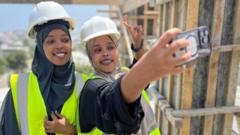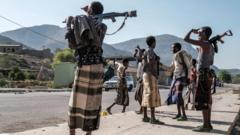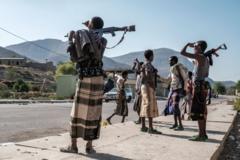In a groundbreaking move for the dating show genre, Ethiopian reality series Latey: Looking for Love has stirred conversation and controversy in a society where traditional courtship often remains private. The series, inspired by Western formats like The Bachelor, broke cultural norms by featuring ten women vying for the heart of a single man, 38-year-old Ethiopian-American Messiah Hailemeskel, who resides in Dallas.
With more than 620,000 views on YouTube following its finale, Latey showcases contestants engaging in various physical and creative challenges—everything from boxing to devising commercial ads—offering a fresh take on romance in Ethiopia. Notably, the show diverges from common local dating practices, where building relationships is usually a more discreet affair.
Bethel Getahun, a 25-year-old content creator who won the competition, shared her emotions in a recent interview, stating that her success feels surreal and is a source of pride for her. However, viewers' responses range from celebration to critique; some assert the show reflects a Westernization of Ethiopian culture. Ethiopian vlogger Semere Kassaye expressed concern about women being portrayed as objects of competition, echoing sentiments voiced by other detractors in online comment sections.
Nonetheless, Bethel argues that Latey offers much more than its central concept of competition. "The show represents diverse types of women," she stated, emphasizing the personal narratives and struggles that contestants shared throughout the season. From tales of survival to overcoming emotional hardships, the show provides insight into women's lives in Ethiopia, touching on serious topics like political oppression experienced by contestants like actress Vivian, who fled Eritrea.
The production team behind Latey, including co-founder Metasebia Yoseph, describes the series as a tool for societal dialogue, suggesting it challenges viewers to rethink cultural concepts. One fan expressed excitement about seeing an Ethiopian adaptation of the dating show model, labeling it a pioneering moment for the media landscape in the region.
Looking forward, D!nk TV plans to develop a second season, which may feature the roles of contestants reversed, allowing a single woman to choose from ten male suitors. In the midst of producing even bolder content, Bethel's own romantic journey seems uncertain as she navigates a long-distance relationship with Messiah.
Despite the challenges and differing opinions regarding the show's impact on Ethiopian culture, Bethel contemplates the reforms in media representation of women that Latey may inspire. "It's a new way of showcasing women and how they express themselves," she concluded, highlighting the significant shifts now brewing in Ethiopian societal norms.





















